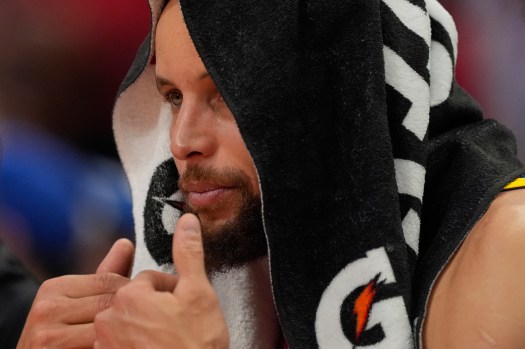SPORTS INFO DASH
Sports Info Dash is your all-in-one hub for real-time sports updates, live scores, in-depth match stats, player profiles, and breaking news across football, basketball, tennis, and more. Stay ahead with the latest in global sports action.
Rockets' Defensive Tactics: Examining Their Impact on NBA Playoffs
Sports Info Dash
The NBA playoffs often bring out the most competitive strategies from top teams. This season, the Houston Rockets have made headlines for their challenging defensive tactics. Their approach has sparked debate, especially regarding their methods against star players like Stephen Curry. Let's explore how the Rockets' gameplay is influencing the series and igniting conversation throughout the basketball community.

The Rockets’ Aggressive Approach Against the Warriors
During the recent matchup between the Houston Rockets and the Golden State Warriors, the Rockets' defense stood out. One instance gained particular attention: defenders targeted Stephen Curry’s injured thumb during critical moments. According to ESPN’s detailed report, both Curry and his coach Steve Kerr noticed attempts by Rockets players to make contact with Curry’s hand after he released shots. This move, while controversial, is permitted under current NBA rules as long as the ball has already left the shooter’s hand.
Coach Steve Kerr openly discussed the need for a rule change. He expressed concern that these defensive techniques, if left unchecked, could lead to more injuries for shooters around the league. Kerr stated, "Players are going to outsmart the rules. So on every release, Steph's getting hit, but it's basically within the rules."
Dillon Brooks and the Rockets' Mindset
The Rockets' forward Dillon Brooks did not deny these aggressive tactics during his postgame interview. He explained that exploiting an opponent's injury is part of high-stakes competition. Brooks remarked, "If [someone] had an injured ankle, I would attack that ankle every single time." This sentiment is further highlighted in a Bay Area News Group analysis that outlines how neither Brooks nor the Rockets shy away from their defensive intent.
The NBA’s Rulebook Under Scrutiny
The series has sparked a larger discussion about current NBA rules regarding contact after a shot release. Steve Kerr elaborated on the rule, pointing out its loopholes. In his comments featured in Sports Illustrated, Kerr called it "the dumbest thing I’ve ever heard" and urged the league to consider adjustments to protect players from avoidable harm. For now, referees can only call a flagrant foul in extreme cases.
These conversations highlight the broader impact of the Rockets' defense—forcing the NBA to rethink how it safeguards its athletes. The current spotlight on the Rockets may influence league-wide changes for next season.
Will the Rockets’ Strategy Change the Game?
This playoff series could be remembered as a turning point regarding physical defense in professional basketball. The Rockets’ willingness to push the boundaries has not just affected the outcome of current games. It also challenges long-standing interpretations of game rules. As the playoffs progress, fans and analysts alike will be watching how the Rockets’ strategy unfolds—and whether it leads to meaningful change in the NBA going forward.
Conclusion
The Houston Rockets have made their mark this postseason with an aggressive defensive identity. Their tactics have sparked debate over what’s fair and safe within professional basketball’s regulations. As the NBA considers possible updates to its rules, the Rockets stand as a symbol of both innovative gameplay and the need for ongoing reforms in the league. Stay tuned for further developments as teams continue their quest for the championship.